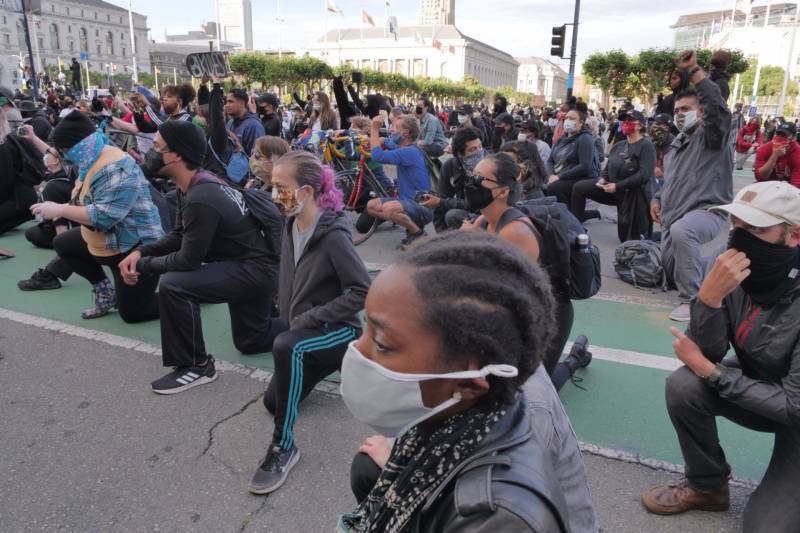The Urgent Need for Anti-Racist Education
Educator Christina Torres writes about the importance of anti-racist education and lists resources to help teachers challenge white supremacy in themselves, in schools and in classrooms.
Avoiding Racial Equity Detours
Educator Paul Gorski calls out four common ways schools and organizations resist racial equity measures to avoid making structural changes and names five principles of equity literacy, starting with “The Direct Confrontation Principle.”
Resources for student learning and discussion
Reflecting on George Floyd’s Death and Police Violence Toward Black Americans
Facing History and Ourselves’s step-by-step lesson framework for remote classrooms helps teachers and students reflect on police violence historically and today and prepares them to share their voice more broadly.
Confronting Anti-Black Racism
This collection of resources on PBS LearningMedia includes coverage of recent protests, videos on the origins of the Black Lives Matter movement, PBS documentaries on race and racism, and ideas for elevating students’ voices in their communities.
How to Reform American Police, According to Experts
This article from Vox looks beyond the current protests to what police reform might look like more broadly.
How Much Do You Really Know About Martin Luther King, Jr. and the Civil Rights Movement?
We hear Dr. King’s name a lot when Americans protest racial injustice, but do we know what Martin Luther King, Jr. stood for and what his vision for civil rights included?
Too Young to Vote, Old Enough to Act: A Brief History of Major Youth-Led Movements
Youth activists have been at the forefront of recent protests. This history of youth-led movements in America puts the current moment in context.
Summer of Rage: Lessons from the 1967 Race Riots in Detroit and New Jersey
Some have compared the current protests to the “long hot summers” of 1967 and 1968. Learn about those protests, also sparked by police violence, and the still-relevant recommendations of the Kerner Commission.
Resources for classroom social-emotional learning and well-being
Talking About Race with Young Children
This podcast from NPR Life Kit includes practical tips and resources for families and educators.
Confronting Bias: Ethics in the Classroom
This collection from PBS LearningMedia was created by WNET’s Youth Collective. It’s full of resources to help classroom promote understanding and foster ongoing dialogue about bias. Explore all three sub-categories: Understanding Bias, Experiencing Bias and Addressing Bias.
When to Call Someone Out or Call Them In Over Racist Behavior
KQED’s MindShift posted an excerpt from Tiffany Jewell’s book “This Book is Anti-Racist: 20 Lessons on How to Wake Up, Take Action And Do The Work” which provides advice and real talk.
Responding to Trauma in Your Classroom
Students experience trauma for a variety of reasons. This blog post from Teaching Tolerance lays down some basics for supporting students struggling with trauma in school settings.
Focusing on Student Well-Being in Times of Crisis
Written in the first days of distance learning with the COVID pandemic in mind, this Edutopia article applies to any crisis.
More from KQED Education: Resources on the History of Policing and Today’s Calls for Reform
